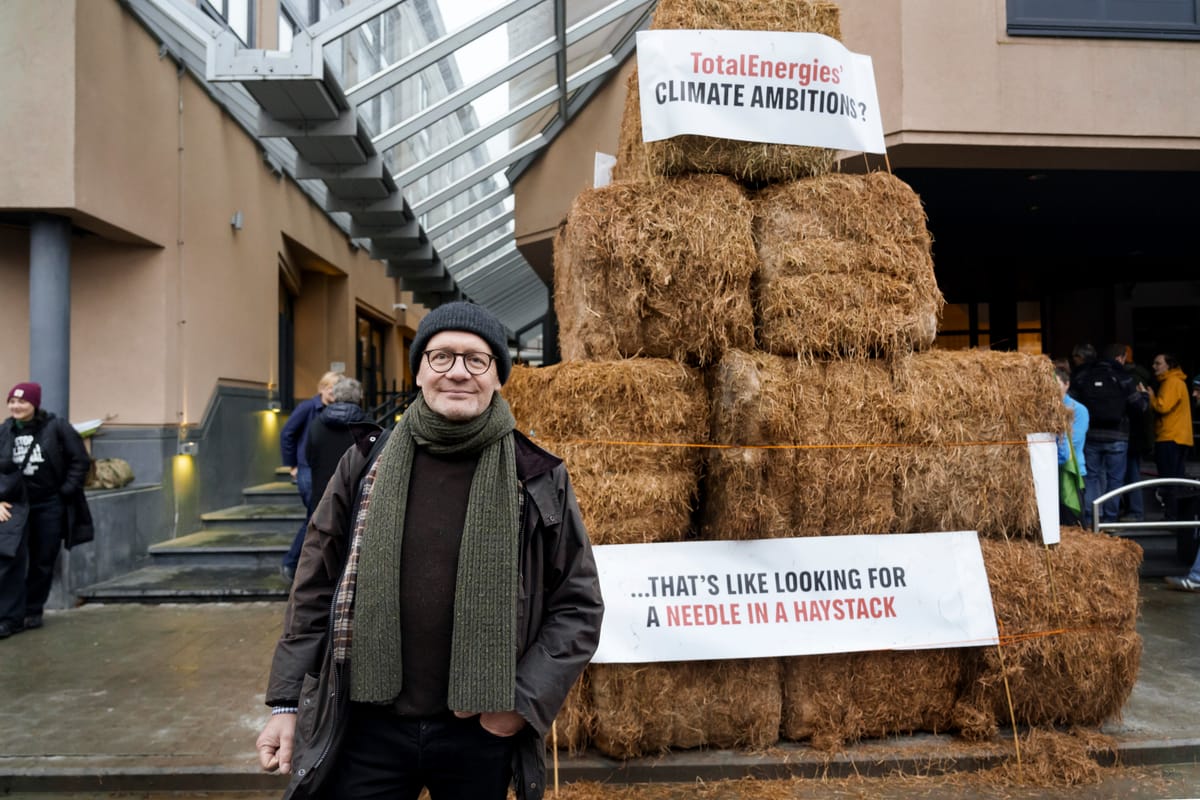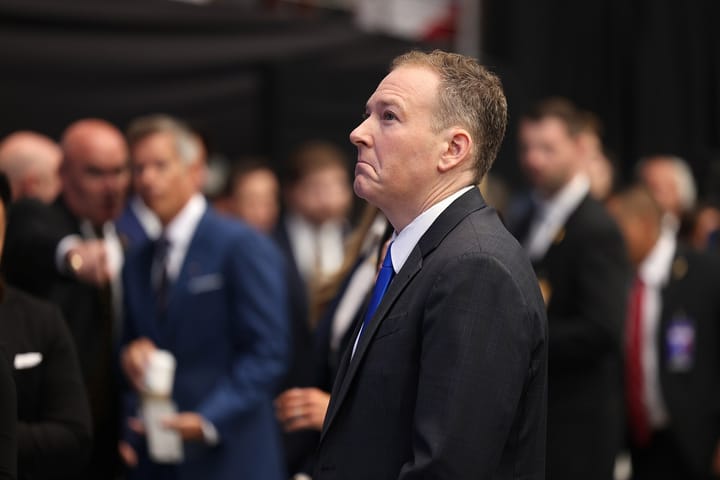Belgian Farmer Faces Off In Court Against French Oil Major

A first-of-its-kind climate lawsuit in Belgium, featuring a smallholder farmer going up against one of the largest oil and gas companies in the world, is coming before a court today in proceedings that will scrutinize the company’s role in contributing to the climate crisis.
Lawyers representing farmer Hugues Falys and three Belgian NGOs are arguing today before the Tournai Commercial Court that French multinational oil giant TotalEnergies should be held accountable for its business activities that are exacerbating climate change, which is already resulting in damaging impacts to Falys’ agricultural livelihood. It is the first case ever brought in Belgium against a multinational corporation over climate change, and if successful, it could set a groundbreaking precedent for corporate climate accountability.
“It’s time we debated the responsibility of these multinationals for climate change, and time they were held accountable,” lead plaintiff Hugues Falys, who resides in Belgium’s Hainaut province and engages in ecologically sustainable farming, said in a statement.
Falys, along with the organizations FIAN, Greenpeace Belgium, and the Human Rights League, filed the lawsuit in March 2024 seeking to hold TotalEnergies liable for climate-related damage under Belgian law. According to a press release announcing the filing, the case aims “not only seeks to get recognition for the damages suffered by Hugues Falys, but also to ensure TotalEnergies’s compliance with the targets of the Paris Agreement.” Plaintiffs demand that the court order the company to implement a credible transition plan that includes sharp cuts to its greenhouse gas emissions and a swift phase out of its oil and gas production. Specifically, the demands are for TotalEnergies to slash its emissions by more than 60 percent by 2030, immediately halt new investments in fossil fuel projects, and reduce oil and gas production 47 percent by 2030 and 75 percent by 2040.
Data from the Carbon Bombs project show that TotalEnergies is involved in 106 new extraction projects, 18 liquified natural gas (LNG) terminals, and 30 ‘carbon bombs’ – massive fossil fuel ventures that are expected to generate over a billon metric tons of carbon pollution over their lifetimes. TotalEnergies is one of the so-called carbon majors, or major fossil fuel producing entities responsible for generating the vast majority of the carbon emissions that are overheating the planet. The company has also known about the impacts of its business on the global climate for more than half a century yet has deliberately promoted doubt about the link between fossil fuels and climate change, the lawsuit asserts.
“Total has known since the 1970s that they were responsible, that their activities lead to anthropogenic climate change,” Marie Doutrepont, a Belgian lawyer representing the plaintiffs, told reporters during a press briefing in late August.
Doutrepont said the court will consider questions of admissibility, including whether such a claim against a French company can proceed in Belgian court. “If we win [on the jurisdiction question], if Belgium is competent to treat the case, that means that actually Total can be sued in any country where damages caused by climate change are occurring,” she explained. TotalEnergies, while headquartered in France, does have a significant presence in Belgium as the country’s leading fossil fuel distributor and refiner, according to plaintiffs.
The court, located on the western edge of Belgium near the French border, will also hear arguments on the merits. The parties have already submitted their written pleadings. The presentation of oral arguments has now begun, with the plaintiffs’ side presenting their case on Wednesday, November 19. TotalEnergies will argue its defense on November 26. The hearings will wrap up in December, and the court is expected to issue its decision sometime in the spring of 2026, according to a case timeline.
By taking on this legal action, Falys is hoping to bring attention to the plight of small farmers during a time of accelerating climate crisis. “My profession is intimately linked to the climate. In recent years, climate change has caused farmers a great deal of damage and left us uncertain about the future,” he said in a press release announcing the lawsuit.
Farmers in other countries have also started turning to courts seeking to hold major emitters accountable for climate damage. In Peru, a farmer and mountain guide brought a pioneering climate case against the German energy company RWE. Now, RWE is facing another climate suit that will soon be filed by dozens of Pakistani farmers who suffered devastating losses during the 2022 floods.
TotalEnergies has itself faced multiple lawsuits over its climate change contributions and communications. In 2020 several French NGOs and local governments brought a case against the French oil major seeking to compel it to align its business activities with the Paris Agreement goals. That case initially ran into some procedural setbacks but is now advancing towards a hearing on the merits. In October a French court ruled in a landmark greenwashing case that Total had misled consumers over statements made around its net zero aspirations and commitment to the energy transition.
That greenwashing judgment, along with several other major breakthroughs in climate court cases over the last two years – including the historic climate change advisory opinion issued by the International Court of Justice in July – are promising developments that bolster the Belgian case against Total, the plaintiff NGOs say: “Major rulings in recent months have strengthened climate justice, and these rulings will support the arguments of the Farmer Case.”


